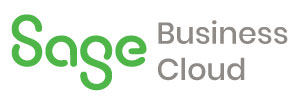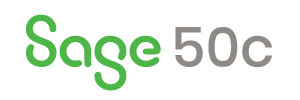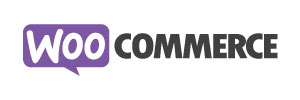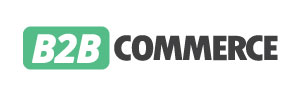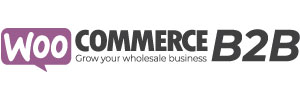In this write-up we’ll take a look at the advantages of incorporating your Sage Business Cloud Software with an eCommerce system like b2b eCommerce in order to simplify your service. Should you incorporate Sage to eCommerce or otherwise? You choose:
Should you incorporate your Sage Accounting with an eCommerce shop?
In order to integrate my Sage Business Cloud with an eCommerce store, do I require technical skills?
Various kinds of rates and supply used from Sage for an eCommerce shop.
Order kinds elevated in Sage: what’s best for my company?
Sync rates from Sage to eCommerce.
Why should you incorporate your Sage Business Cloud with a b2b eCommerce store?
A bookkeeping system like Sage Business Cloud is the core of all your organization information (monetary purchases, stock and also product management, pricing as well as revenue margins etc), so it would make sense for a pair factors for Sage Business Cloud to incorporate with eCommerce:
Clients constantly see the right stock on your site, which means they’ll never ever be dissatisfied when they acquire something, just to be informed the following day it’s out of supply. If the product supply synchronizes from Sage to your online b2b eCommerce store, you’ll never ever need to worry again.
If someone purchases something online, they have actually experienced the effort of picking the thing they fancy, getting in all their personal details, completing a credit card transaction, only to receive an e-mail the following day info them they require to pay more because the cost was incorrect on the web site, don’t expect them to go back to your b2b eCommerce shop in a hurry. Incorporating product price from Sage Audit to your eCommerce shop suggests the rate is always 100% accurate.
In the ever before progressively electronic globe, where rate and turn-around times for orders are crucial, having Sage Audit eCommerce combination for your orders is extremely important. As soon as the clients’ order is placed, the gratification process requires to kick into gear instantly. If you’re slowed down with manually catching order info right into Sage, you’re shedding beneficial time as well as making possibly important mistakes with any type of manual entrance.
In order to integrate my Sage Business Cloud with an eCommerce store, do I need technical skills?
There’s understandably a great deal of concern when terms like “integrate”, “Assimilation” and “accounting eCommerce combination” get thrown around, for an entrepreneur who may not have a specialized IT team to aid in setting up their Sage Accounting to eCommerce assimilation, the question is: “What technological abilities do I need”. The answer may surprise you:
For online/cloud based variations of Sage Business Cloud like Sage Organization Cloud Audit, the combination with Storehub.io is easy– all you require is your username & password and which pricelist you want to sync from Sage Business Cloud to your online store.
For desktop/server-based accounting systems like Sage 200 Advancement, a bit even more configuration understanding is required, however just of your ERP system– Info like username, passwords, database course etc. will certainly be simple enough for you to supply. When establishing your Storehub.io, you’ll obtained a paper on where to find this details in Sage 200 Advancement.
The short answer is “No”, you do not need any type of unique abilities to incorporate Sage Business Cloud Accounting with your eCommerce or b2b eCommerce store.
Different sorts of prices and also supply made use of from Sage for a b2b eCommerce shop.
When Sage Business Cloud is incorporated with eCommerce, there’s a pair choices one can make concerning cost & stock being synced from Sage through to your eCommerce/b2b eCommerce store:
Order types increased in Sage: what’s ideal for my b2b eCommerce?
There are 3 main order kinds that can receive from an eCommerce shop back into your Sage Audit software, and also each have their very own use-cases.
Quote: A Quote serves if you’re not sure if the client is going to proceed/confirm an order with a repayment or otherwise. If the consumer has spent for an order, you can, in Sage Audit, turn the order into an invoice conveniently.
If your organization does not hold supply and depends on sourcing items from suppliers before having the ability to accomplish the order, a quote permits you to conveniently modify the order ought to the whole order request not be feasible
Sales Order: If your eCommerce sells products that are stock-sensitive i.e you can not make even more products, or source things as needed, you’ll intend to reserve supply in Sage Accountancy every time an order is put. Whenever a Sales Order is created in Sage Accountancy, you can establish it so stock is booked. Any type of order positioned on-line, will reserve supply in Sage Accountancy.
Invoice: For orders positioned online on your b2b eCommerce shop, if you have actually obtained payment using a payment gateway, you can set your Storehub.io account to raise an invoice automatically. This essentially verifies the purchase, as well as remove the item/s from supply so nothing else customer might acquire the currently newly out of stock things. Storehub.io will certainly then update the stock on your website if its incorporated with Sage Audit in under 1 minute.
Sync speeds from Sage Business Cloud to b2b eCommerce.
Depending upon your sector, having an eCommerce integration sync with Sage Accountancy that performs successfully (read: on a regular basis) can be crucial to your service.
If you have quickly moving items and have a preparation for brand-new supply that’s not for excellent customer service, you’ll need the assimilation in between Sage Accounting and your eCommerce store to be as quickly as feasible– this is so you never ever sell things that are not in supply and also you’re incapable to satisfy.
If you require your stock and cost to sync rapidly, Storehub.io syncs with Sage Business Cloud every 2 minutes for Sage 200 Advancement as well as Sage 50 Cloud, and also for Sage Business Cloud, the supply, price and orders sync every 1 min or less with Sage.
Even with an incredibly large product supply (we’re chatting 30 000 item SKUs and above), the Storehub.io sync with Sage Accountancy runs effectively as we only scan for the latest product stock as well as price modifications since the last sync time stamp.
Find out more about Sage 200 b2b eCommerce integration here.
Want to know how to connect your Sage 50c with b2b eCommerce? Find out here.


